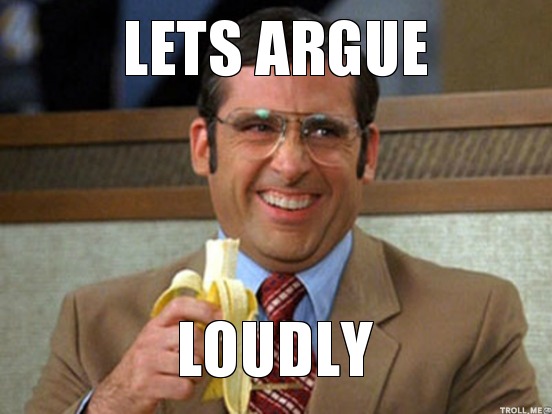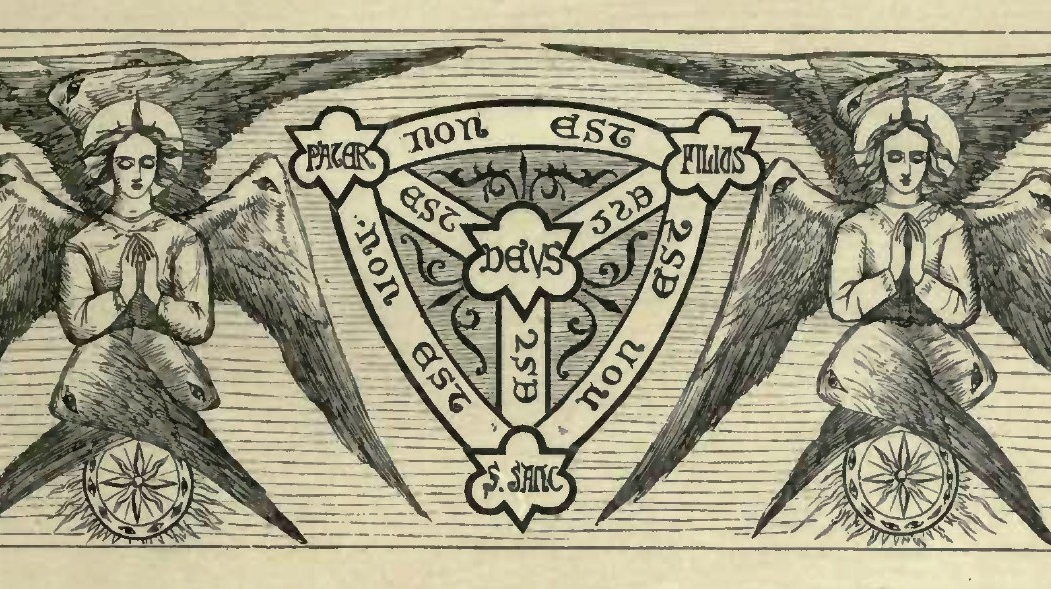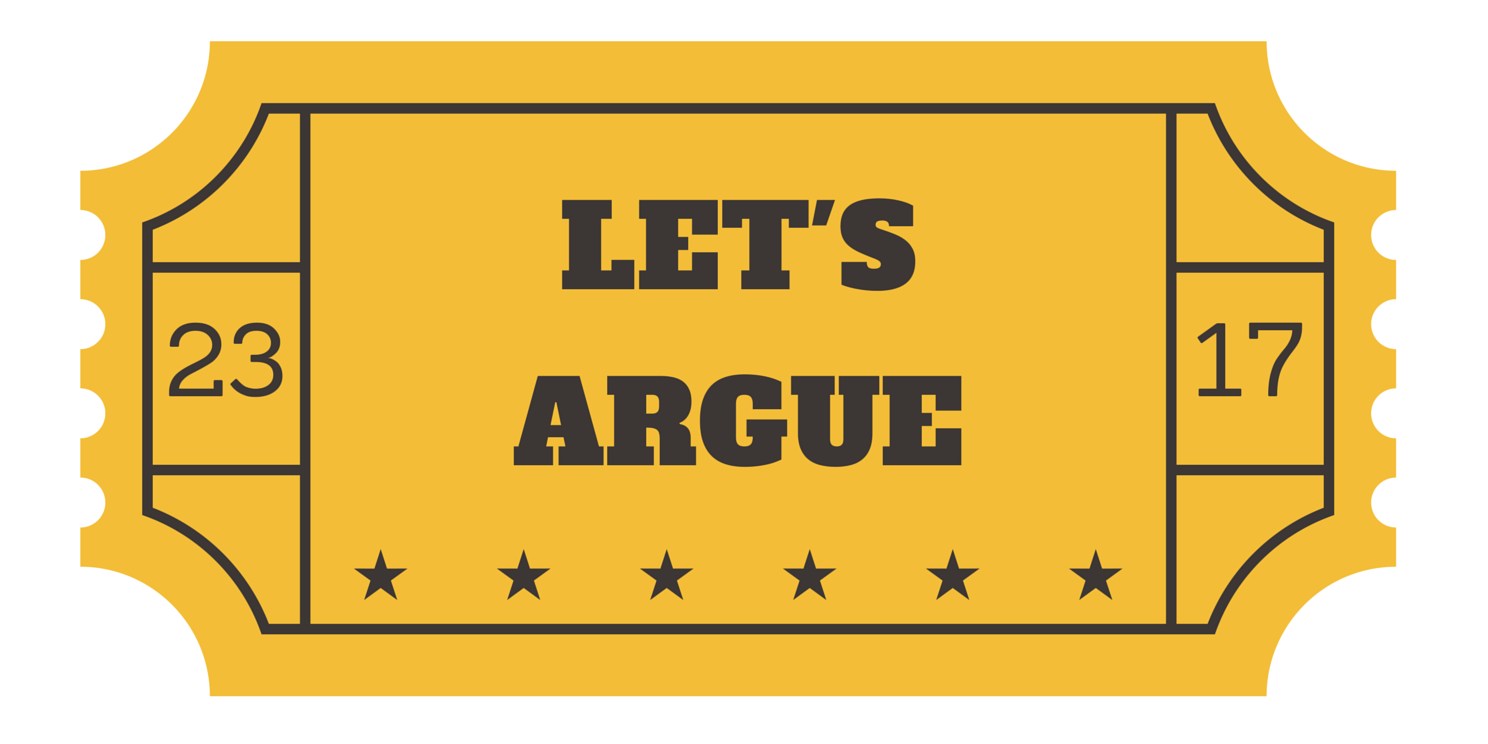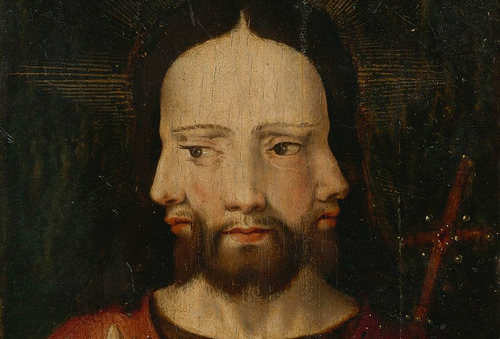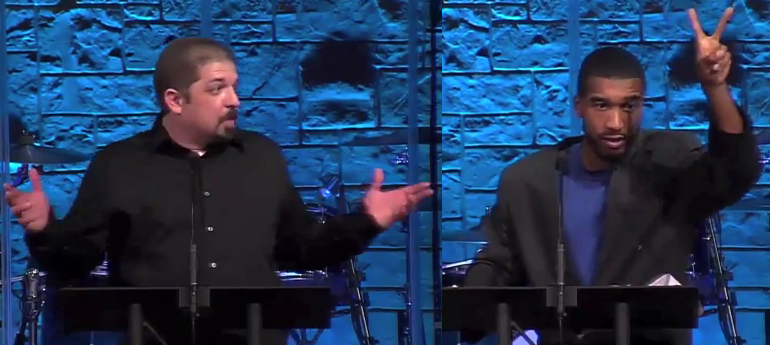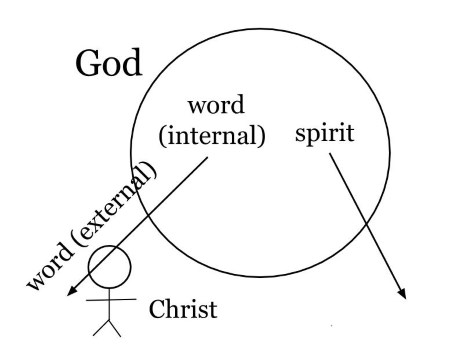Search Results for: Is God a self?
why I’m not a Thomist 1 – the Christian tradition that God is a Being
Our friend Dr. Ed Feser has got himself worked up into full drunken polemicist mode. I earn ridicule and ire normally reserved for Dawkins types. Evidently I touched a nerve by pointing out that most (analytic) philosophers now – reflecting a fairly wide consensus since early modern times – think of God as the greatest being there is or could be, and not as “Being… Read More »why I’m not a Thomist 1 – the Christian tradition that God is a Being
Dialogue with the Maverick Philosopher: God is a being, not Being itself – part 1
Thanks to the Maverick Philosopher, Dr. William Vallicella, for an excellent, deep post following up on a recent face-to-face conversation we had (which was a follow-up to this). In this and follow-up posts, I want to interact with his discussion. I only get through part of it here. Yes, I affirm that God is a being. As a Christian, I hold that “God” is a… Read More »Dialogue with the Maverick Philosopher: God is a being, not Being itself – part 1
Is God Perfect?
Three Christian philosophers on perfect being theology, tradition in philosophy going back to the great medieval philosopher Anselm of Canterbury (d. 1109), but really, as Leftow has shown, back to Augustine, Plato, and the Christian Bible. First, a great interview (click the thin blue button) with Oxford philosopher Brian Leftow by Robert Lawrence Kuhn, for the PBS should Closer to Truth. I did not know that Leftow was… Read More »Is God Perfect?
Defining the concept of a unitarian
 Last time I offered a definition of the concept of a trinitarian.
Last time I offered a definition of the concept of a trinitarian.
This time, I will try to define the concept of a unitarian.
Many definitions of this concept are unacceptably polemical. It is unacceptable to define a unitarian as an anti-trinitarian. This violates requirements 3 and 5 – it doesn’t tell us what a unitarian is, but only what a unitarian is against. And this is part of a common slashing rhetorical strategy which I have recently mentioned. For the same reasons we must reject defining the concept unitarian as one who “denies the Trinity” or “has heretical beliefs about the Trinity,” etc. Equally, it is unacceptable to define a unitarian as one who holds the correct or biblical view about Jesus and God. Whether or not that’s so, it’s trying to sneak an argument for a thesis into a pseudo-definition of that thesis.
One common definition is,
Definition 1: someone who believes in exactly one unipersonal God.
I think this is on the right track, but the term “unipersonal” is obscure, and so this definition violates requirement 6 (and possibly also 3).
I have been working with this definition of the concept:
Definition 2: someone who believes that the one God just is (is numerically identical to) the Father.
I now think that this isn’t quite right.
First the definition is arguably too narrow. Read More »Defining the concept of a unitarian
“Divine Deception” Defended
In recent posts here and here my co-blogger and friend arch-nemesis Chad McIntosh has tried his hand at refuting my Divine Deception argument. I’ve already responded to numerous tries to get around it by my friend Bill Hasker here and here. But to his credit, Chad is thinking creatively and coming at it from some new angles. First, it’s important to be be clear about the… Read More »“Divine Deception” Defended
A Few Thoughts on Sudduth’s Open Letter
 A few thoughts on re-reading Sudduth’s open letter explaining his conversion.
A few thoughts on re-reading Sudduth’s open letter explaining his conversion.
Saith Sudduth,
Krishna is the all-attractive Absolute who is manifested in the different religious traditions of the world. There is merging into impersonal Brahman. There are also distinctly theistic experiences in which the self encounters a personal God.
The ultimate being is either personal or not. Thus, it can’t be that both the aforementioned experiences are veridical, i.e. represent God as God really is.
I think Sudduth agrees; he goes on to explain that “merging” experiences are something like the devotee coming in contract with what some would call the “energies” of God. Of course, Indian philosophers like Sankara would disagree. And I don’t know why we should accept Sudduth’s claim that:
…that transcendental consciousness (the aim of nearly all religious traditions) is in fact variegated in nature.
I don’t know that there is any one general sort of experience which nearly all traditions aim at. Experiences of a loving god are not at all like the sorts of experiences monistic types profess, wherein, they say, Read More »A Few Thoughts on Sudduth’s Open Letter
Reflections on the Impossibility of a truly lonely Christian God (Dale)
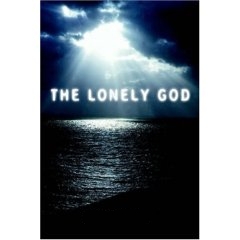
Not possible. But why? (image credit)
Here are some rough-draft thoughts on another line of thinking associated with social trinitarian theories.
God is perfect. Arguably, an absolutely perfect being could not fail to be “well off” – in classical terminology, a perfect being must be happy, must be in a “blessed” condition. Part of perfection is independence. One kind of independence is the kind which comes up when discussing ontological or cosmological arguments for God’s existence – the idea of aseity, or existing but not because of anything else. But here’s another kind of independence or self-sufficiency: not requiring any thing (i.e. any fact not entailed by your existence) to be well off, to have a good life. Perhaps we could call it the divine property of security, or independent or self-sufficient happiness.
Is God as well off as he could possibly be? Arguably not,Read More »Reflections on the Impossibility of a truly lonely Christian God (Dale)
more on despising analytic theologians
Our friend Fr. Aiden has responded to my post defending analytic theology (and analytic theologians). This bit, I think, advances the discussion: …my concern is not false teaching per se but the subjection of God’s self-revelation as Father, Son, and Spirit to the quest for philosophical precision. And this brings me to the heart of my concern. As far as I can tell, the theological… Read More »more on despising analytic theologians
a reply to Robert Bowman on biblical monotheism, the Trinity, and the Shema
Thanks to Rob Bowman for his thoughtful reply to my previous post regarding the Shema and his argument with Sir Anthony Buzzard. While I sided with Mr. Bowman regarding the meaning of the Shema (as saying that YHWH is unique – who which only presupposes, but doesn’t assert that he is a god), I think Buzzard is correct that ancient Jews thought that YHWH was… Read More »a reply to Robert Bowman on biblical monotheism, the Trinity, and the Shema
Parsing Plantinga: is there such a person as God?
Here’s a very interesting interview with probably the greatest living Christian philosopher. Like many of my peers, I’m a big fan. Read the whole thing to see why I picked a teapot. Here are some relevant bits (with my own bolding): I take atheism to be the belief that there is no such person as the God of the theistic religions. The first being of… Read More »Parsing Plantinga: is there such a person as God?
10 steps towards getting less confused about the Trinity – #2 Get clear about “God”
What sort of being is “God” supposed to be? Your answer to this will constrain your options when it comes to thinking about the Trinity. The “Trinity” (in the primary sense of the term) is supposed to be none other than the triune God, the tripersonal God of officially catholic traditions since the late 4th century. In other words, the Trinity and God are supposed… Read More »10 steps towards getting less confused about the Trinity – #2 Get clear about “God”
podcast 17 – Lewis vs. Rogers 1 – opening statements
On September 9, 2013, Reformed Christian apologist Anthony Rogers debated Islamic apologist Shadid Lewis. The debate question was: Are trinitarians polytheists? (Entire video here.) I think this debate is worth thinking through carefully. In this podcast series, I’m breaking up the debate into three listenable chunks. I’ve also slightly shortened the audio by removing some dead air, etc., but I have not deleted a single word by the… Read More »podcast 17 – Lewis vs. Rogers 1 – opening statements
podcast 175 – Marcellus of Ancyra
Marcellus’s theology is a key to understanding the post-Nicea controversies.
SCORING THE BURKE – BOWMAN DEBATE – Burke 1
In round 1, Burke explains that he’s a biblical unitarian, not a “rationalist” or “universalist” unitarian. Further, he confesses that: Jesus Christ is the Son of God, but not God himself and The Holy Spirit is the power of God, but not God himself. Further, The Bible is the inspired Word of God and the sole authoritative source of Christian doctrine and practice. He neither… Read More »SCORING THE BURKE – BOWMAN DEBATE – Burke 1
Leftow 1: “Anti Social Trinitarianism”
Brian Leftow is recognized as one of the most important living Christian philosophers. Formerly of Fordham University in NYC, he now holds the prestigious Nolloth Chair of the Philosophy of the Christian Religion at Oriel College, Oxford. See Trent Dougherty’s comments here for a list of some of his publications. In person, Leftow is very pleasant and interesting, and his sense of humor also comes… Read More »Leftow 1: “Anti Social Trinitarianism”
more on Ben Nasmith on monotheism
I’ve been meaning to get back to Ben for a while, to continue our dialogue on biblical monotheism and related matters. (Previous post.) In his reply, Ben says, I gather that Bauckham affirms (in different words) that monotheism involves, (1) A strict partitioning of reality into divine and not-divine portions; and (2) The unity of the divine portion of reality, i.e. the divine reality acts… Read More »more on Ben Nasmith on monotheism
10 steps towards getting less confused about the Trinity – #10 Don’t be afraid to think hard about God
What is God’s most important commandment? When asked about this, Jesus replied, “‘Hear, O Israel: the Lord our God, the Lord is one; you shall love the Lord your God with all your heart, and with all your soul, and with all your mind, and with all your strength.’” (Mark 12:29-30, NRSV) Notice the last two elements with which we are to love God: mind… Read More »10 steps towards getting less confused about the Trinity – #10 Don’t be afraid to think hard about God


